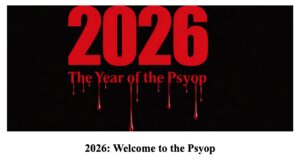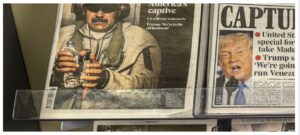Something has been going on with Robert Mueller’s investigation of people thought to have played significant roles in the Trump-Russia affair. The special counsel, assigned to investigate “any links and/or coordination between the Russian government and individuals associated with the campaign of President Trump,” has been farming out seemingly important parts of the investigation to offices outside his own.
In April, Mueller referred an investigation of close Trump associate Michael Cohen to federal prosecutors in New York. This month, the U.S. attorney in Washington — not Mueller — indicted Maria Butina on charges of being an unregistered Russian agent. And also this month, when Mueller charged 12 Russian intelligence officers with hacking Democratic Party and Clinton campaign offices, he immediately turned the case over to the Justice Department’s National Security Division for prosecution.
Cohen is a key figure in theories of Trump-Russia collusion. In former British spy Christopher Steele’s notorious dossier, Cohen was accused of holding secret talks with Russian officials in August 2016 to discuss “how deniable cash payments were to be made to hackers who had worked in Europe under Kremlin direction against the CLINTON campaign and various contingencies for covering up these operations and Moscow’s secret liaison with the TRUMP team more generally.”
If that’s not collusion, nothing is. Such activities, if they occurred, would be at the center of Mueller’s jurisdiction. And yet Mueller handed Cohen off to the Southern District of New York.
Butina figures in theories that a wealthy Russian banker “illegally funneled money to the National Rifle Association to help Donald Trump win the presidency,” in the words of a McClatchy report from January.

(Screenshot via YouTube)
Again, such activities, if they actually took place, would clearly be in Mueller’s bailiwick.
Finally, the indictment of the 12 Russian intelligence agents goes to the very heart of Russian attempts to interfere with the U.S. presidential campaign, the investigation of which is Mueller’s responsibility. Yet once Mueller indicted them, he handed the case over to the Justice Department.
What is going on? I asked a few former federal prosecutors if they saw any messages in Mueller’s move. The takeaway: These aren’t encouraging developments for those longing for a big collusion/conspiracy/coordination indictment from Mueller.
“I think it proves that little if any of what Mueller’s team has generated so far is linked to the special counsel’s mandate,” said Former Prosecutor 1. “Everything that is public so far could, should and typically is handled by either United States Attorney offices of jurisdiction; National Security Division attorneys, or even Criminal Division attorneys at Main Justice.”
“I think Mueller doesn’t have anything on collusion,” said Former Prosecutor 2. “I think we would have seen it. I don’t see anything that looks like there’s a crime lurking — maybe he’s got eight indictments under seal, but to me, it makes no sense. All of this says to me there is no there there.”

(AP Photo/Alex Brandon)
Former Prosecutor 3 said the investigations passed off — Cohen and Butina — indicate the subject matter is “outside [Mueller’s] jurisdiction.”
Some former prosecutors drew a distinction between the Cohen and Butina cases, in which Mueller handed off the investigation to others, and the 12 Russians case, in which Mueller made the indictment himself and then handed off the prosecution. That could be because Mueller realized that his team, staffed with investigators, could not manage a complex prosecution in the courtroom.
“They don’t have the bandwidth to handle a highly technical case like that,” said Former Prosecutor 2. From Former Prosecutor 3: “Good investigators aren’t good litigators, and very often the best courtroom lawyers aren’t the best subject matter experts.”
It has been widely observed that there is no way the 12 Russians — government intelligence officers located in Russia — will ever come to the United States for trial. And that has led some of the former prosecutors to suggest that if Mueller were serious about trying them, he would have indicted them secretly and then made efforts to nab them unawares. “Everyone who indicts international defendants like the 12 Russians would do so under seal if they were serious about prosecuting,” said Former Prosecutor 1.
Still others saw the 12 Russians case as an illegitimate use of Mueller’s power. Andrew McCarthy, a former federal prosecutor who writes for National Review, called the case “nakedly politicized law enforcement.”
“There is absolutely no chance any of the Russian officials charged will ever see the inside of an American courtroom,” McCarthy wrote. “The indictment is a strictly political document by which the special counsel seeks to justify the existence of his superfluous investigation.”

(Pablo Martinez Monsivais/AP)
Finally, other legal types, including yet another Justice Department veteran, said moving the 12 Russians case to a highly secretive part of the department is a good way to make the case disappear. “If Mueller kept it in his office, people would ask what’s going on with the case,” said the veteran. “But when he gives it to the National Security Division, it falls off the face of the earth. It’s a way of burying it.”
Taken together, none of that points to the big collusion/conspiracy/coordination indictment of Resistance dreams. Such an indictment might still be on the way, of course — no one on the outside has a full picture of what is going on inside Mueller’s office — but the signs don’t seem to be pointing toward it.
Finally, all the handed-off cases raise questions about whether a special prosecutor was needed at all. Mueller clearly felt there was no need for a special prosecutor to pursue Cohen or Butina — and one could argue that the Butina case, at least, was closer to Mueller’s core mission than the Paul Manafort prosecution. And in the 12 Russians matter, if a case that goes to the heart of the Trump-Russia affair can be fairly tried by Department prosecutors, it’s reasonable to ask: Why was a special counsel appointed in the first place?
Please follow and like us:




It's Like They're TRYING To Make Trump Look Good–Veritable Comedy Of Errors
Everything stinks about this "Russian collusion/meddling" balderdash. For we KNOW the electronic voting is crooked and corrupt (a), and (b) further, the vote-fraud is gross in so many other ways as James O'Keefe of Project Veritas demonstrates. (c) And what's w. the corrupt Fed. judges who keep throwing-out the state Voter-ID laws?
And there was never any specific crime established or alleged to justify a "special prosecutor," was there?–BUT Trump's own people, Sessions and Rosenstein, saw nooooo problem.
And Mueller was grossly conflicted, having worked for hitlery; then he hires a bunch of biased democrats to dig dirt on Trump.
And isn't it ridiculous to accuse Russkies when EVERYONE knows the Jews wouldn't think of letting anyone else horning-in on their territory, Jews the absolute, topmost criminals-in-charge, having all the money, owning all the people and equipment, etc.
And lately we hear Trump is willing to go along in the charade now, agreeing to answer some questions fm Mueller, thus giving legitimacy to the farce. What a joke.
Meantime, Democrats have been let off the proverbial "hook," esp. hitlery and Debbie Wasserman Schultz. In fact, Demos have been melting-down now to outright socialism, wanting to do away w. the ICE (immigration, customs), rioting, lying, trying to stick-up for Obola who illegally surveilled–all of which Mueller is ignoring, isn't he?
So something stinks to high heaven–it's like "deep-state" is deliberately trying to make Trump look good and sympathetic, till the next false-flag as pretext for attacking Iran for the heroes of Israeli terror-state, eh?